Let’s take a moment to talk about what inclusion really means—because I think it’s widely misunderstood.
When people hear “DEI” or “inclusion,” they often assume it’s about quotas or special treatment. But the truth is, inclusion isn’t something “those people over there” need. It’s something we all need. It’s about addressing the barriers and challenges each of us might face, depending on our identities, circumstances, or situations.
Without inclusion, we all lose. Imagine a workplace where new parents can’t access flexible work arrangements and have to choose between their careers and their families. Or schools where bright students with undiagnosed learning differences are labeled as “lazy” and left behind. Or healthcare systems that make it nearly impossible for elderly patients to navigate complex forms and appointment systems. Or government programs that don’t consider the needs of rural communities.
Of course, inclusion is and always will be about ensuring fairness and opportunities for people who have been historically excluded, underrepresented, or underserved—like women, people with disabilities, racial minorities, LGBTQ+ individuals, and others. Their experiences of exclusion highlight the barriers that persist in our systems. But inclusion doesn’t stop there. It also ensures that systems work for everyone, including people who may not realize they have inclusion needs until they face barriers themselves.
Inclusion is about creating environments where everyone has what they need to thrive, and my 8-Inclusion Needs of All People framework helps break this down.
Let’s start with Access. Imagine you’re recovering from surgery but can’t enter your workplace because the building doesn’t have a ramp. Or you’re trying to participate in a virtual meeting, but poor audio quality makes it impossible to understand. Inclusion ensures that everyone has access to the spaces, resources, and tools they need to fully engage.
Then there’s Space. We all need environments where we feel safe—physically and psychologically. For example, in a workplace, this could mean knowing you won’t face retaliation for raising concerns. In schools, it could mean giving kids a quiet space to reset when they’re overwhelmed. When people feel safe, they can focus and thrive.
Opportunity is about ensuring everyone has a fair shot. In workplaces, this might mean being considered for a promotion even if you’ve taken time off for caregiving. In education, it could mean recognizing the potential in students from under-resourced schools who haven’t had the same privileges but have immense talent.
Representation matters too. When leadership doesn’t reflect the people it serves, blind spots happen. For instance, a local council that doesn’t include parents might overlook the need for safer school crossings. Representation ensures everyone’s experiences are part of the conversation.
Allowance is about making accommodations for life’s realities. Whether it’s allowing flexible work hours for employees commuting long distances or adjusting a school’s timetable for kids traveling from rural areas, it’s about meeting people where they are without judgment.
Language plays a key role. Imagine trying to follow complicated tax instructions that feel written for lawyers, not everyday people. Inclusive language ensures everyone understands and feels capable, regardless of their background.
Respect is about valuing who people are and what they’ve experienced. It’s recognizing the contributions of working-class families or respecting the beliefs and traditions that shape someone’s identity. When people feel respected, they’re more likely to contribute fully.
Finally, Support ensures people aren’t left to struggle alone. Whether it’s community support during a natural disaster or clear workplace policies for handling burnout, support ensures people can navigate life’s challenges and thrive.
When these needs aren’t met, the consequences are real. Parents leave the workforce. Students fall through the cracks. Patients delay care. And communities feel disconnected from the systems meant to serve them.
Inclusion isn’t about lowering standards or favoring one group over another. It’s about removing barriers so that everyone—no matter who they are—has the opportunity to succeed.
So, when someone says DEI isn’t relevant, I challenge that notion. Inclusion matters—to all of us. Because when systems are inclusive, everyone benefits.
Dr. Liz Wilson is a globally recognized and awarded expert in diversity, equity, and inclusion and the author of The Strategic Inclusion Playbook: Your Comprehensive Guide to Creating an Inclusive Organization. She has been a trusted advisor to organizations worldwide, offering evidence-based strategies to address inclusion challenges while navigating complex regulatory environments.
Dr. Wilson is also the founder of Include Inc., a consultancy specializing in innovative approaches to achieving inclusive outcomes. Her academic research and published 8-Inclusion Needs of All People framework has been adopted across the world, navigating legal, cultural, and social norms to address the intersectional needs of all people in efforts to eliminate discrimination. Wilson, L. A. (2023).
Dr. Liz also shares her research and strategic inclusion capability through the Include Institute.
The 8-Inclusion Needs of All People: A Proposed Framework to Address Intersectionality in Efforts to Prevent Discrimination; International Journal of Social Science Research and Review, 6(2), 296-314.






